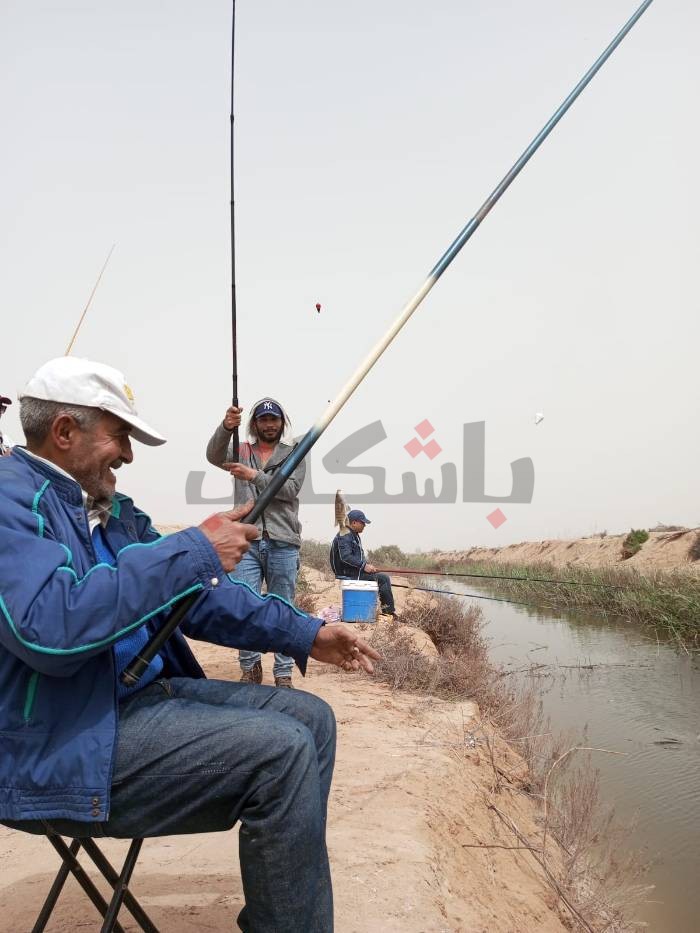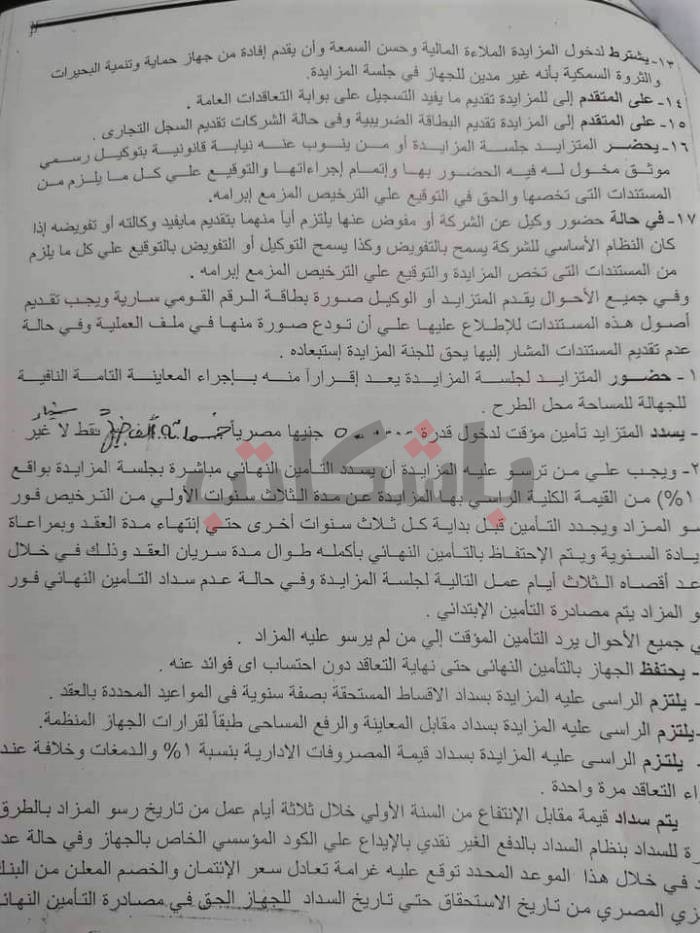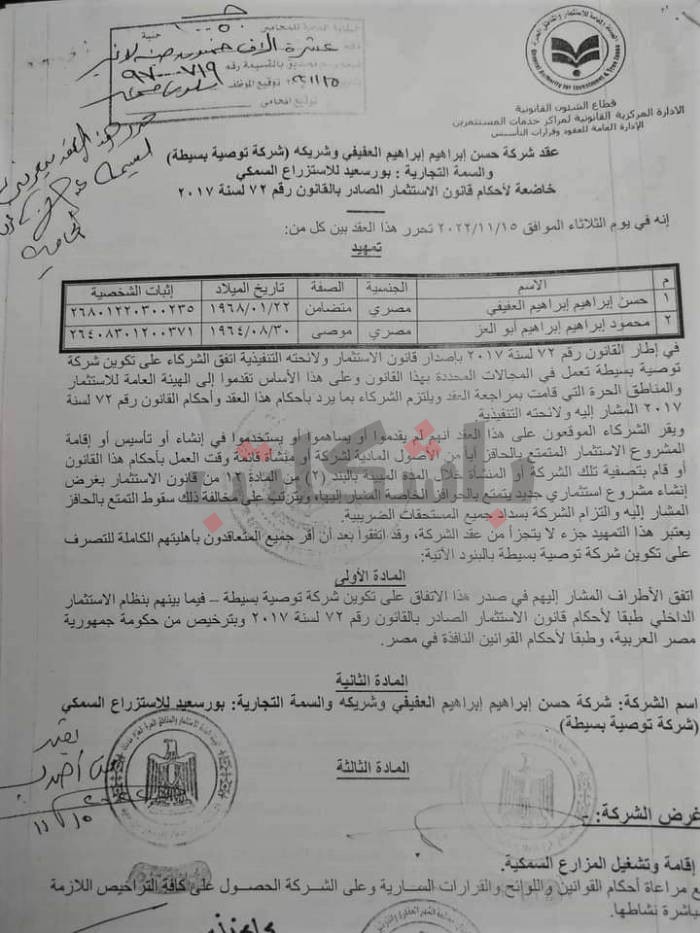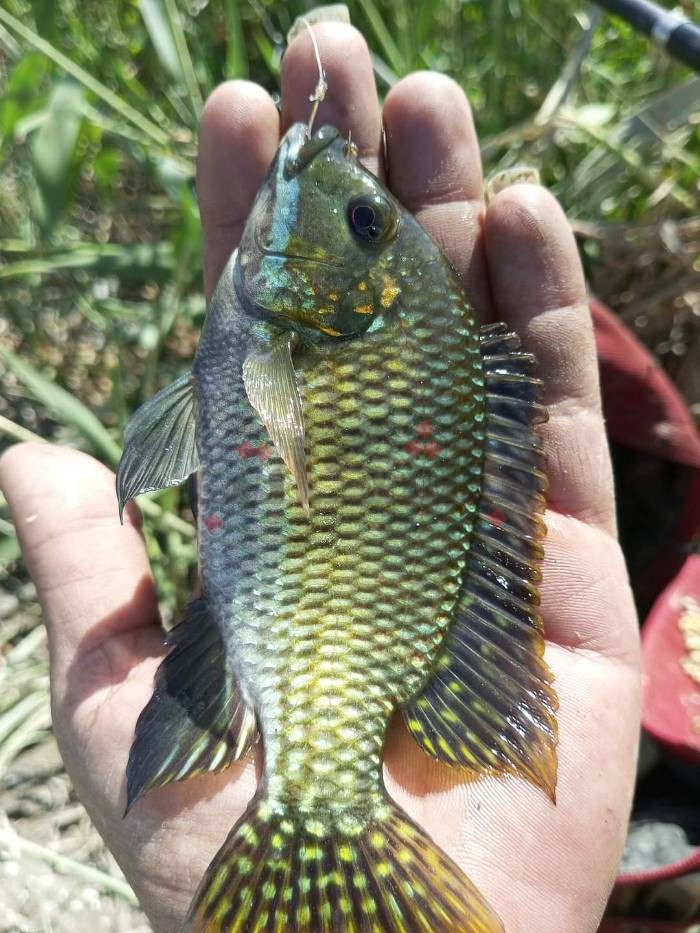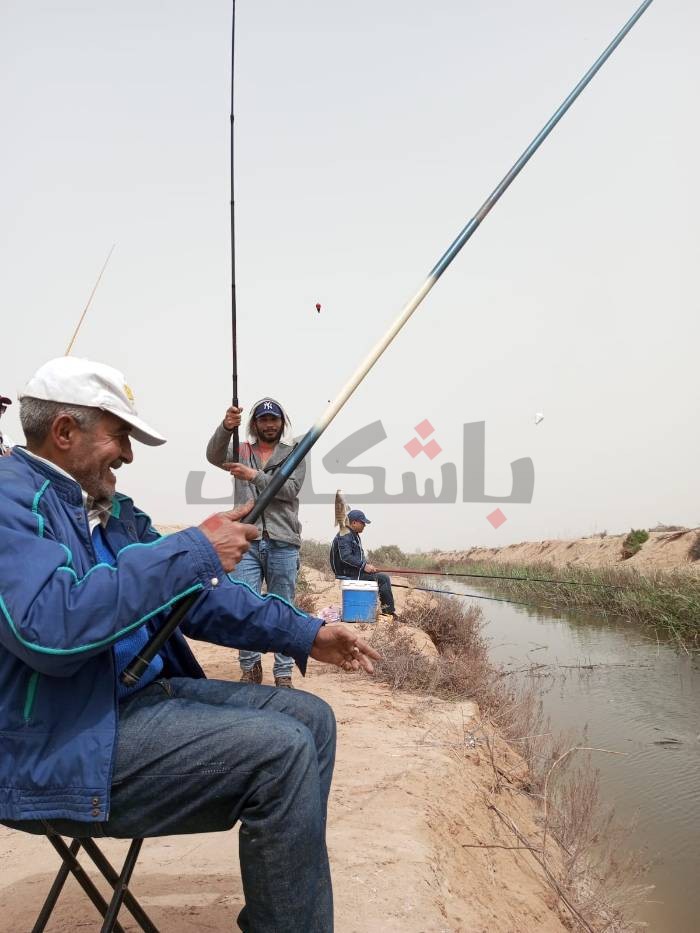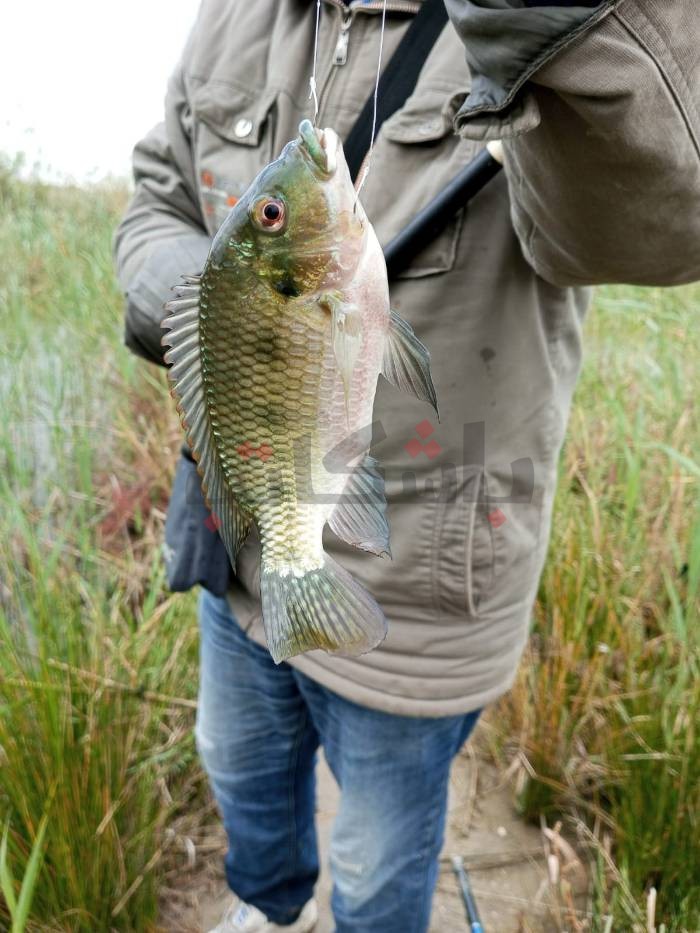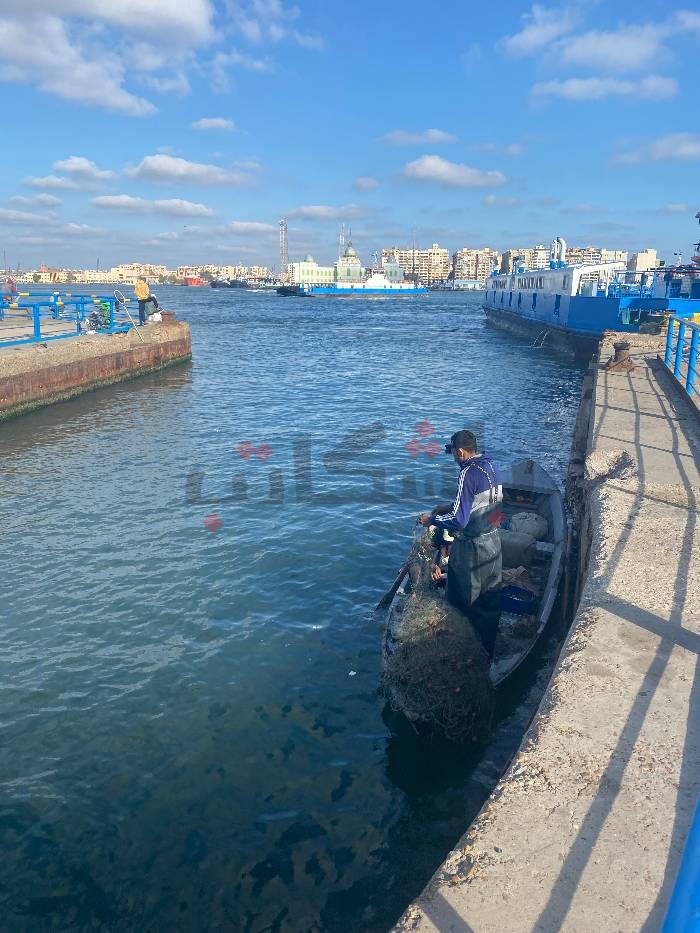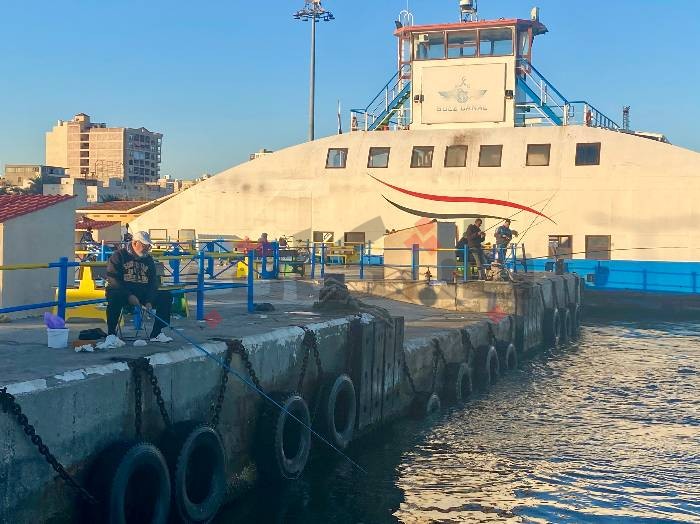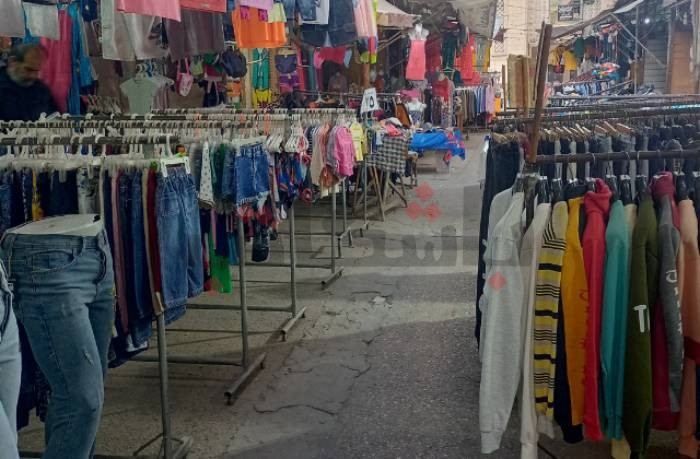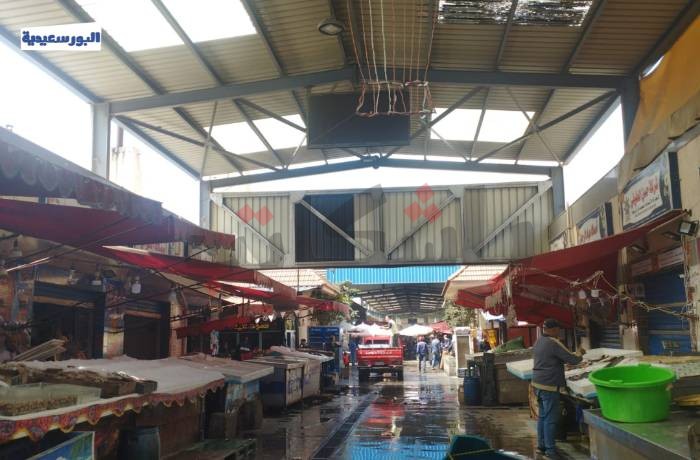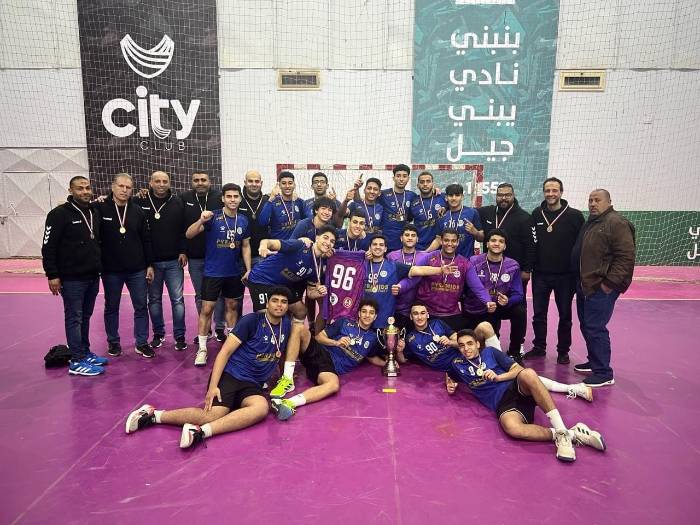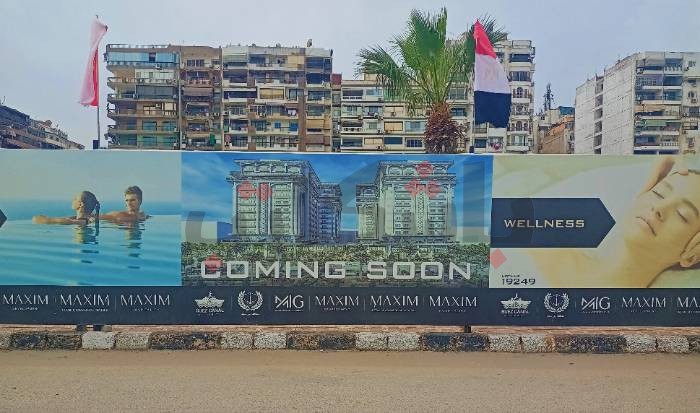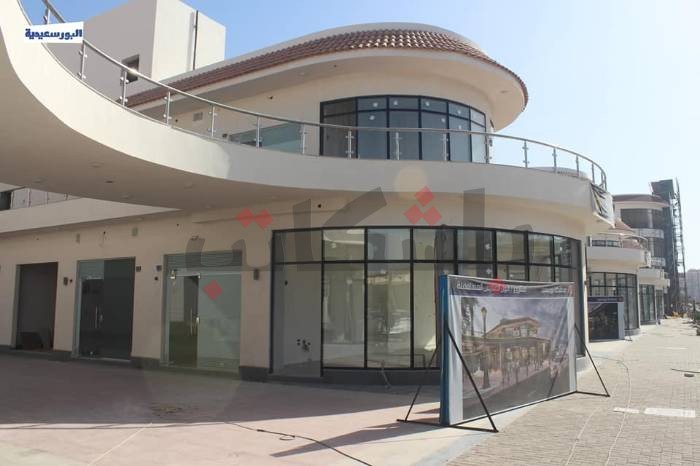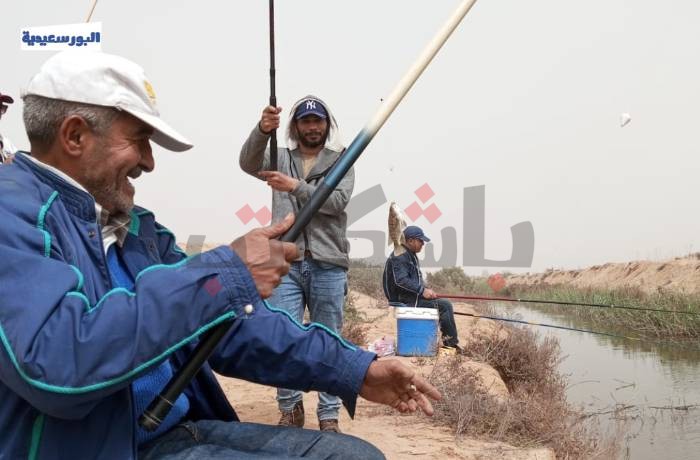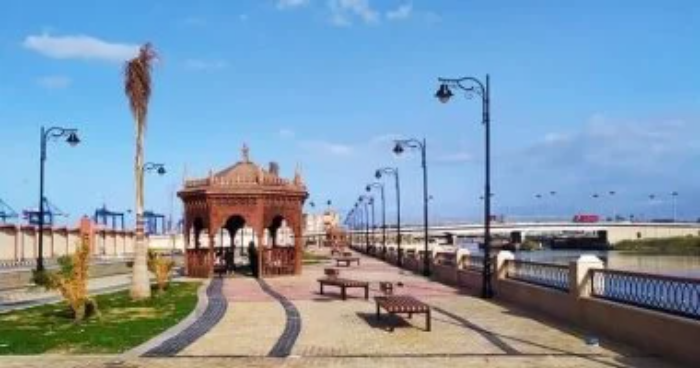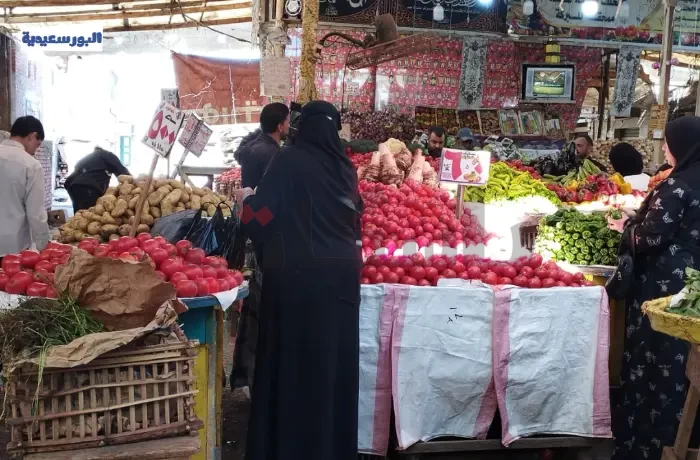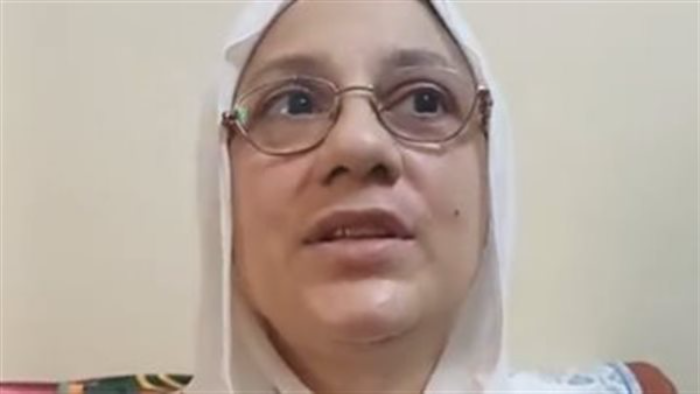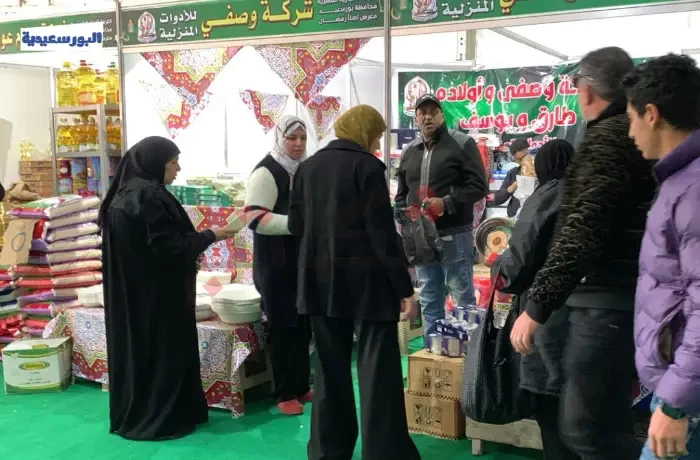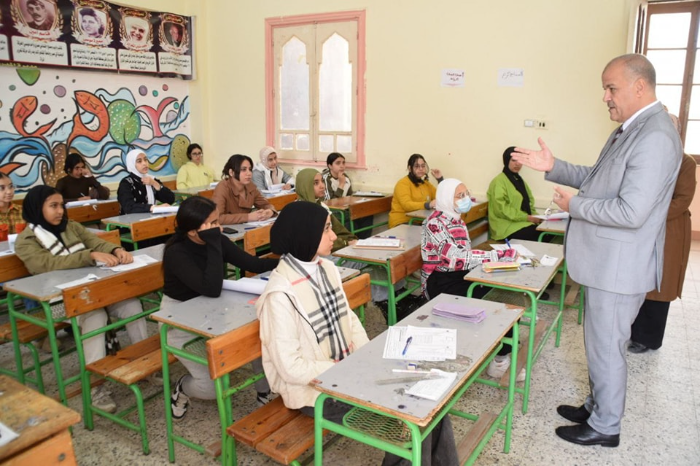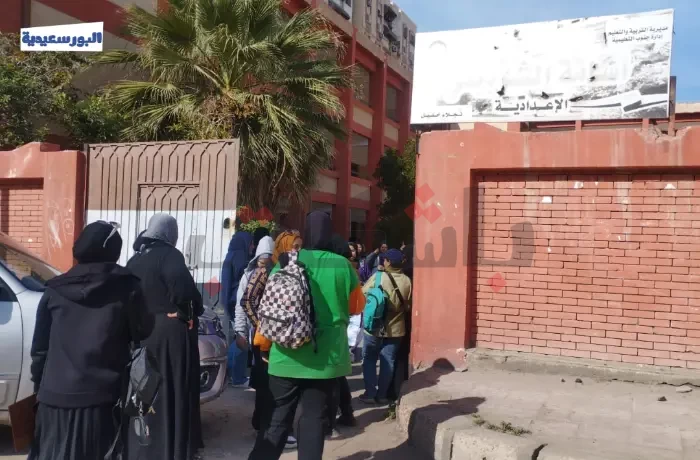Between the people of Port Said and fishing, there are tales passed down through generations for over a century and a half. The coastal city's residents don't consider it merely a profession but also a hobby. All it takes to practice is a fishing rod and a place allowed for fishing, which hasn't been available for forty years.
For many years, what the people of Port Said called 'amateur fishing' was well-known. It allows one to momentarily escape life's pressures and harshness, A few hours of free time are enough for you, however, this hobby has become threatened by obstacles and restrictions preventing its practice.
In 1983, the General Authority for Fish Resources Development under the Ministry of Agriculture and Land Reclamation imposed a condition requiring a license for amateur fishing with a rod for anyone engaging in fishing, whether from a pleasure boat or standing on the seashore. This license, named 'Amateur Fishing,' was obtainable for a fee that reached ten Egyptian pounds at that time. However, last January, amateurs were startled to find the fee had skyrocketed to 217 pounds.
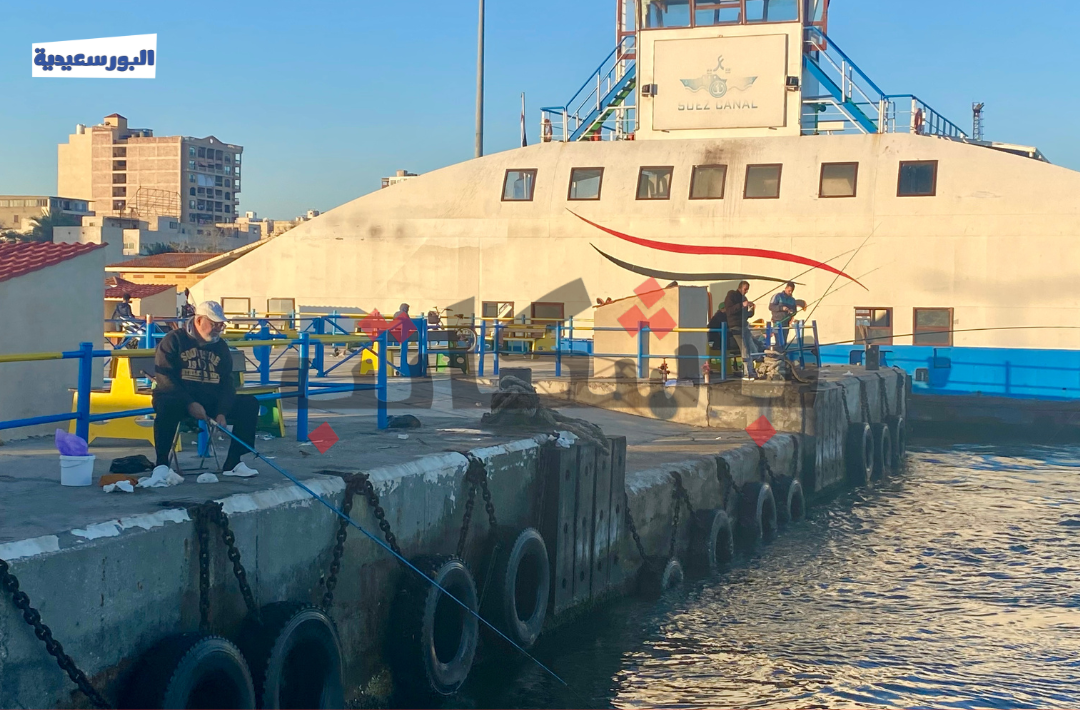
Additional procedures were also imposed, such as submitting an application to the nearest fisheries office for those seeking permits, with the application being stamped. A photocopy of the national ID card is required, along with two photos of the license applicant and a photocopy of the receipt for the fees paid within the year.' It's worth noting that the Coast Guard has the authority to prevent amateur fishing with a rod in the absence of the necessary permits for fishing in maritime waters. Additionally, they have the right to confiscate fishing gear.
"Why all this intransigence towards fishing enthusiasts? It's not just the increased permit fees that affect me, but the procedures that take so long that most fishing spots within the city are now closed to everyone," said Ahmed Saad, an employee at the Port Said Primary Court and an amateur fisherman.
Saad adds, "Many fishing enthusiasts are on the verge of abandoning the hobby. Quite a significant number have started selling their fishing gear due to the recent challenges they face, the most prominent being the closure of most fisheries in Port Said for undisclosed reasons, and the difficulty in obtaining permits even after fulfilling all the required papers."
He continues, "Once, I took my wife and kids to spend time with my family and practice fishing together. We went to an empty spot on the beach, only to be aggressively stopped by a group of soldiers who demanded forcefully that I leave the area. At that moment, I wished there was a bit of understanding. I was with my family, not causing trouble or bothering anyone. In the end, a fisherman holds a rod, not a gun."
The General Authority for Fish Resources Development under the Ministry of Agriculture and Land Reclamation is responsible for issuing fishing permits for both professional fishermen and amateurs. According to Article 24 of Law No. 146 of 2021 regarding the protection and development of lakes and fish wealth, it has prohibited practicing the fishing profession without obtaining a license. Without this license, individuals expose themselves to legal penalties, including imprisonment for up to one year and a fine of up to 50,000 Egyptian pounds, or one of these two penalties.
Some amateur fishermen have relied on fishing as a source of simple income, but they've also faced their share of the economic crises affecting Egyptian citizens. This situation has impacted their work and also the businesses selling fishing gear.
Hussein Ahmed, an amateur fisherman, says, “In light of the harsh economic situation for Egyptian families, the hope for most amateur fishermen in Port Said is to return from their trip with a catch that alleviates the cost of a lunch meal or to sell the fish to restaurants and earn a small amount that helps with their livelihood.”
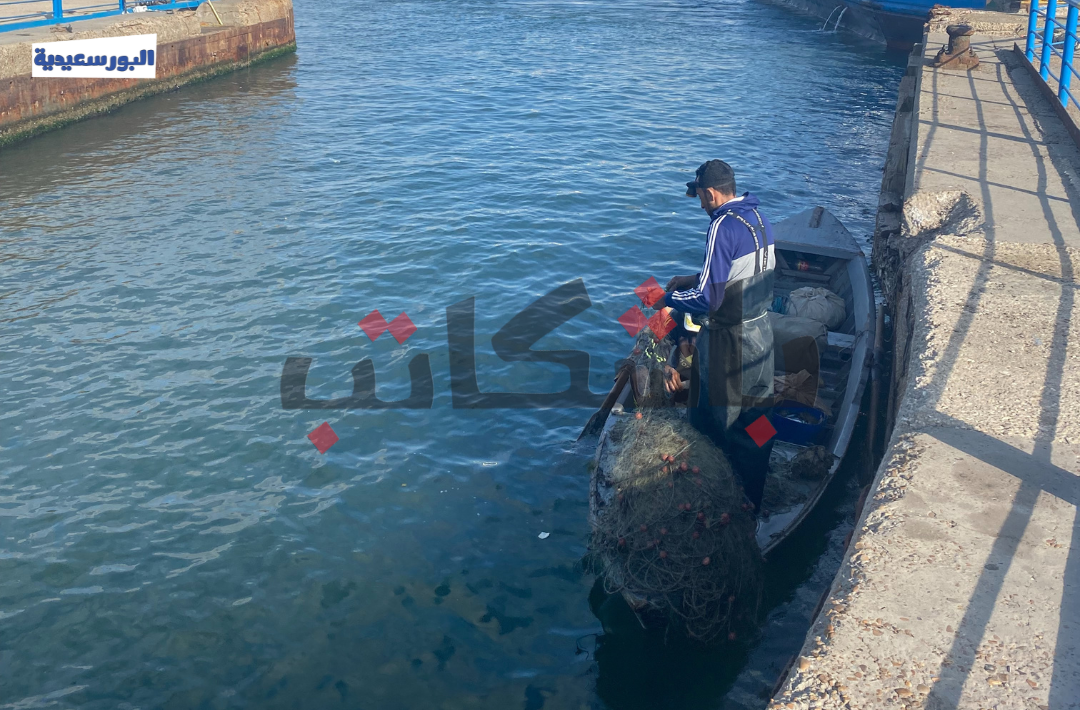
He adds, “All the fisheries are closed, even the beaches are off-limits. Why should I, as a government employee, be subjected to being labeled a lawbreaker? That's why I appeal to the army border guards and all honorable officials to facilitate the issuance of rod fishing permits. If there is a problem, punish the perpetrator rather than closing the area entirely. Please take into account people's circumstances and life pressures.” He emphasizes, “We're passionate about this sport, and for some, it's their livelihood. There's nothing else they know".
The commercial recession has affected fishing gear shops, causing several issues for their owners, threatening their existence in the profession on which they depend for their income, in light of the decline in the price of the pound against the dollar, and its impact on the rise in the prices of tools.
Muhammad Shaker, owner of a shop in El-Zhor district, describes the current situation as “a complete halt.” He says, 'I've stopped selling fishing reels and rods because their prices fluctuate constantly. The shop owner ends up bearing the difference from his own pocket. In just two months, the price of some equipment has increased by up to 50%. For instance, a box of fishing line that was priced at 25 Egyptian pounds just two months ago is now at 65 pounds.'"
Muhammad Ali El-Washahi, owner of a fishing gear shop in Al-Arab district, says, “The store's profit margin has decreased by 80%, and most customers hesitate to buy fishing gear—they come in more to sell than to purchase. I don't want to just talk about the high prices of the equipment because that's not the main reason. There's also the issue of the state, represented by the General Authority for Fish Resources Development, not implementing strict laws regarding the problem of 'undersized fish' unless they have personal interests with those individuals. These are the people who catch fish before they reach maturity, reducing their quantity during fishing. They are the biggest nightmare for fishermen.'"
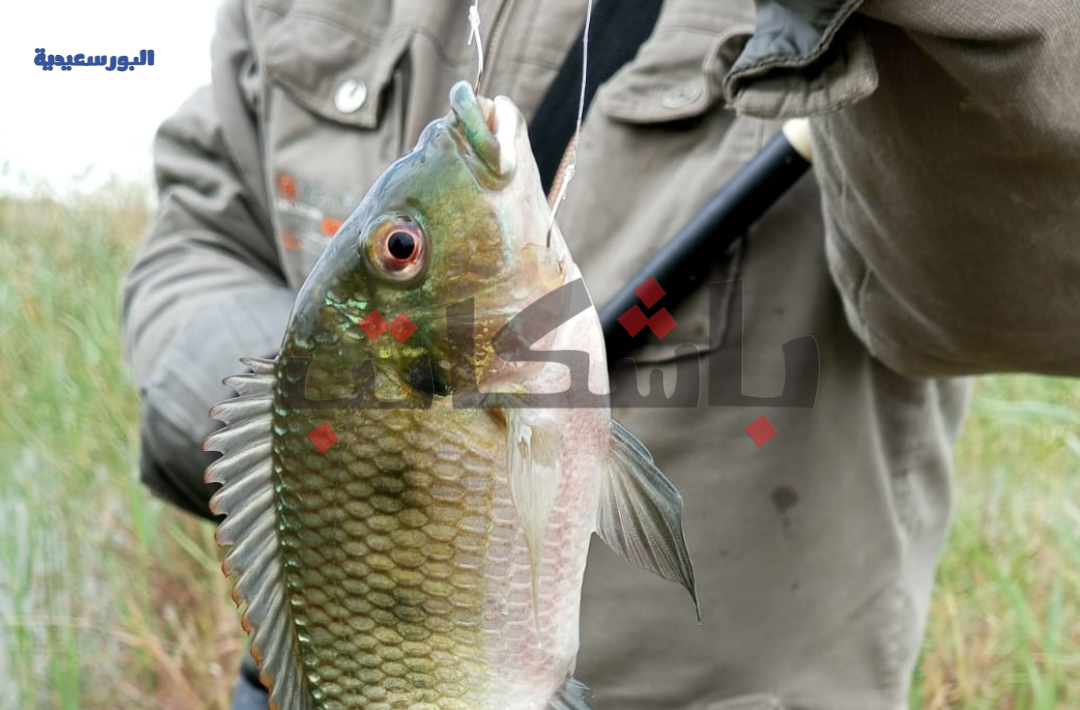
This is confirmed by Saad, the employee, who says, “One of the biggest problems we face is with the fry, and their actions are criminally punishable. According to circulating information, permits are being issued to them costing up to 40,000 pounds. This issue severely impacts both fish wealth and fishermen. Why does the law only criminalize the struggling fisherman who owns nothing but his rod and overlooks the fry fishers?”
He continues "One of the major fisheries that has currently been closed is Lake Manzala after it was leased. This marks a standstill for a large number of fishermen, despite the lake being state-owned and not allowed for lease. The current president had recommended against this during his previous visit to Port Said. However, there's another perspective regarding fish wealth, emphasizing fish farming development with a 3% benefit."
Lake Manzala is bordered by four governorates: Dakahlia, Port Said, Damietta, and Sharqia. It's the largest and most significant natural lake in Egypt. Formerly known as Lake Tenis, it was renamed Manzala due to its proximity to the city of Manzala in Dakahlia. It was renowned for its fertility and possesses the essential elements for fish wealth, serving as the sole source of livelihood for tens of thousands of humble fishermen.
"El-Porsaddya” verified information about the leasing of Lake Manzala and obtained from a private source a contract under the name 'Hassan Ibrahim Ibrahim Al-Afifi and Partner,' with the trademark 'Port Said for Fish Farming.. ‘A Simple Recommendation Company.' This is to establish an investment project to operate and set up fish farms in Lake Manzala, with a license from the government of the Arab Republic of Egypt."
This contradicts with the recommendation of President Abdel Fattah el-Sisi during his remarks on the sidelines of inaugurating several national projects in East Port Said in January 2021.
In statements reported by "Al Youm Al Saba'a" website, President Sisi said, "Lake Manzala suffered from the absence of state control in past years. The Interior Ministry had conducted campaigns over the past 20 years against hideouts and similar activities, but no one addressed this, leaving it until it became dens and individuals acting outside the law."
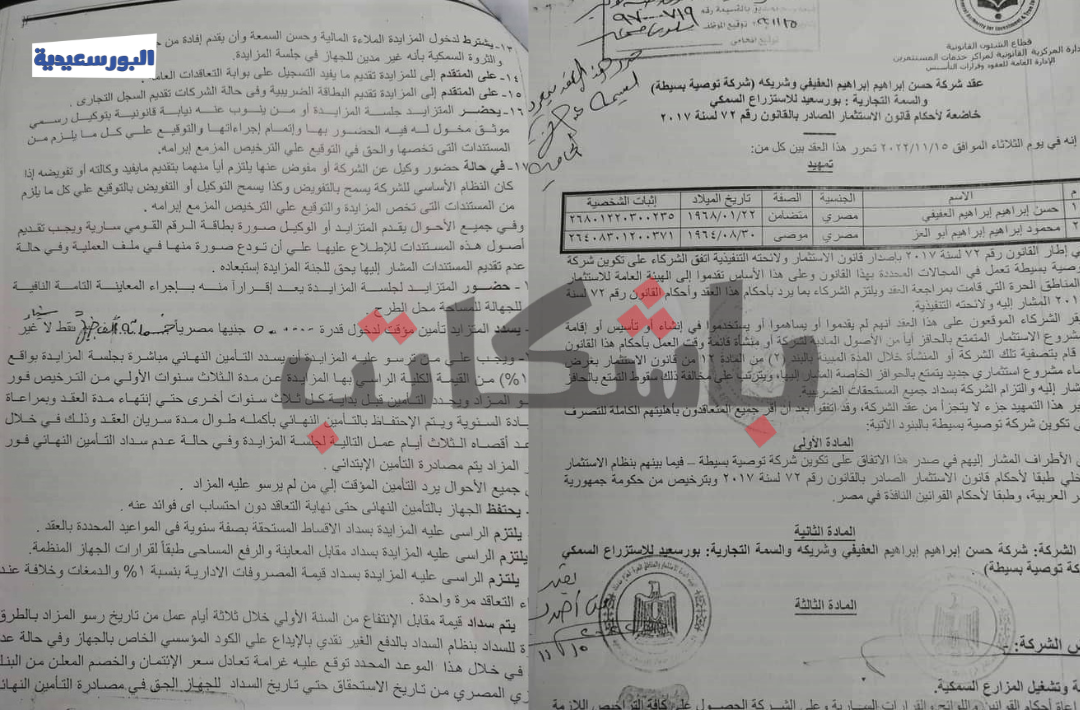
President Sisi added, "The state exerted significant effort for its citizens to improve their lives, aiming for fish that can remain healthy for people. We dredged an average of a meter to a meter and a half, to remove difficult debris from the lake's bottom for the water quality. With the lake covering 250,000 acres producing 70,000 to 80,000 tons of fish or more, there must be complete control over the procedures within the lake after what we've done. We aim to assist the fishermen, educate them, and enhance their lives, but we say again, the issue of additional basins in the lake is not correct."
